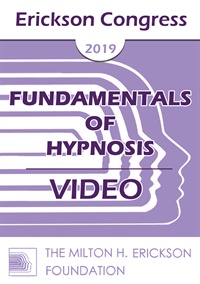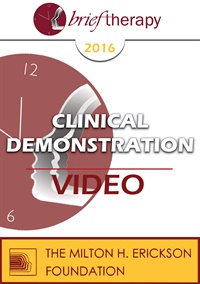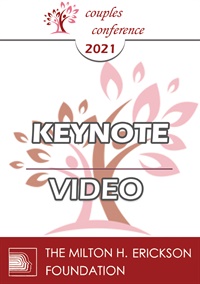
Credit available - Click Here for more information
- Average Rating:
- Not yet rated
- Topic Areas:
- Couples Therapy | IMAGO | Communication | Keynotes | Relationships | Therapist Development
- Categories:
- Couples Conference | Couples Conference 2021 | Online Continuing Education | Pioneers in Couples and Family Therapy
- Faculty:
- Harville Hendrix, PhD | Helen LaKelly Hunt, PhD
- Course Levels:
- Master Degree or Higher in Health-Related Field
- Duration:
- 1 hour
- Format:
- Audio and Video
- Original Program Date:
- Jun 06, 2021
- Short Description:
- This keynote introduces Imago Relationship Therapy, emphasizing safe conversations and the shift to a relational paradigm. Key practices include structured dialogues—such as mirroring, validating, and empathic responses—to strengthen connection and address early childhood influences. The approach focuses on the “space between” partners, aiming to build conscious partnerships, improve relational skills, and support brain health through evidence-based methods.
- Price:
- $29.00 - Base Price
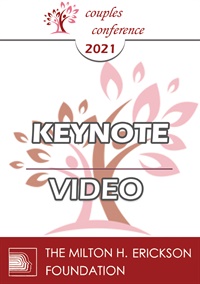
Credit available - Click Here for more information
- Average Rating:
- Not yet rated
- Topic Areas:
- Couples Therapy | Communication | Conflict | Keynotes | Relationships | Social Issues | Training
- Categories:
- Couples Conference | Couples Conference 2021 | Online Continuing Education | Pioneers in Couples and Family Therapy
- Faculty:
- Ellyn Bader, PhD
- Course Levels:
- Master Degree or Higher in Health-Related Field
- Duration:
- 1 Hour
- Format:
- Audio and Video
- Original Program Date:
- Jun 05, 2021
- Short Description:
- Increasingly more and more couples are working together or working virtually in the same space. It is estimated that in the United States 43% of small businesses are family-run and 53% of managers share day-to-day management with a spouse. Working together tends to eclipse romance and dominate a couples life. As therapists, we tend to look at our couples/clients mainly through the lens of our favorite therapy model. However, couples who work together face unique challenges that are not rooted in attachment styles or family of origin conflicts.
- Price:
- $29.00 - Base Price
Tags: Online CE Communication Conflict Couples Therapy Relationships Relationship Challenges Training Social Effects Training Center Partnership Interpersonal Success Therapeutic Applications Business Partnership Commitment Developmental Model Work-Life Balance Negotiation Psychoeducational Approach Financial Stress Pandemic Impact Couples Institute Roles and Responsibilities Acknowledgement and Appreciation Decision Making
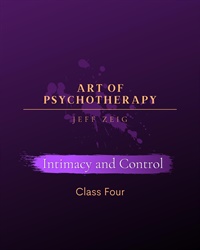
- Average Rating:
- Not yet rated
- Topic Areas:
- Utilization | Clinical Demonstrations | Psychotherapy | Therapist Development | Intimacy | Psychosomatics | Communication
- Bundle(s):
- Art of Psychotherapy - Utilization Series
- Categories:
- Art of Psychotherapy
- Faculty:
- Jeffrey Zeig, PhD
- Course Levels:
- Master Degree or Higher in Health-Related Field
- Duration:
- 2 Hours 22 Minutes
- Format:
- Audio and Video
- Original Program Date:
- Jul 12, 2020
- Short Description:
- For the final class in the Utilization series, Patricia joins us to discuss her preference for being in control, and how that relates to her struggles with intimacy. She also requests help alleviating a psychosomatic response from an earlier trauma. Dr. Zeig uses an interpersonal approach to this session, utilizing verbal and body language techniques to help communicate complex concepts. Zeig establishes the theme of appreciate as the through-line for this session.
- Price:
- $79.00 - Base Price
- Average Rating:
- Not yet rated
- Topic Areas:
- Fundamentals of Hypnosis | Trance | Hypnosis | Art and Creativity | Communication
- Categories:
- Erickson Congress | Erickson Congress 2019
- Faculty:
- Stephen Gilligan, PhD
- Course Levels:
- Master Degree or Higher in Health-Related Field
- Duration:
- 1 Hour 51 Minutes
- Format:
- Audio and Video
- Original Program Date:
- Dec 15, 2019
- Short Description:
- In therapeutic trance, a person releases from rigid ego positions, thereby opening to the resources and healing capacities of the creative unconscious. In this process, nonverbal communications—such as limbic resonance, felt sense, somatic centering, and musicality—are of central importance. The workshop explores how therapists may attune to these nonverbal patterns and utilize them to develop and guide creative trance work.
- Price:
-
Sale is $29.00
price reduced from Base Price - $59.00
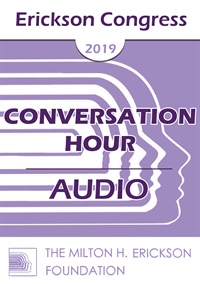
- Average Rating:
- Not yet rated
- Topic Areas:
- Conversation Hours | Art and Creativity | Communication | Humor
- Categories:
- Erickson Congress | Erickson Congress 2019
- Faculty:
- Michael Hoyt, PhD
- Duration:
- 1 Hour 3 Minutes
- Format:
- Audio Only
- Original Program Date:
- Dec 14, 2019
- Short Description:
- For many, Erickson set the prototypical example of how to be creative and often evoked a You Said What?! (YSW?!) reaction from clients and students. As we describe in the new book, Creative Therapy in Challenging Situations: Unusual Interventions to Help Clients (Hoyt & Bobele, 2019), such YSW?! interventions are particularly useful and effective when approaching unusual client problems.
- Price:
- $15.00 - Base Price
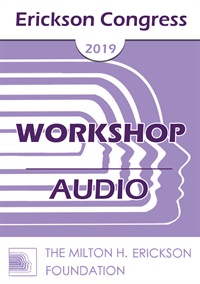
- Average Rating:
- Not yet rated
- Topic Areas:
- Workshops | Autism | Hypnosis | Children and Adolescent Therapy | Family Therapy | Communication
- Categories:
- Erickson Congress | Erickson Congress 2019
- Faculty:
- Laurence Sugarman, MD
- Duration:
- 1 Hour 38 Minutes
- Format:
- Audio Only
- Original Program Date:
- Dec 13, 2019
- Short Description:
- Hypnotic conversations explore, evoke, engage and reallocate and experiential resources. Having hypnotic conversations with young people who meet criteria for autism spectrum disorder (ASD), presents challenges both in relating and accessing resources. The challenge extends to helping their parents to better parent by seeing them as resourceful and capable.
- Price:
- $15.00 - Base Price
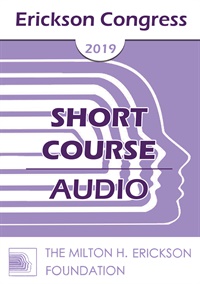
- Average Rating:
- Not yet rated
- Topic Areas:
- Short Courses | Communication | Psychotherapy | Ericksonian Hypnosis and Therapy Techniques | Hypnosis
- Categories:
- Erickson Congress | Erickson Congress 2019
- Faculty:
- Susan Pinco, PhD
- Duration:
- 1 Hour 16 Minutes
- Format:
- Audio Only
- Original Program Date:
- Dec 12, 2019
- Short Description:
- Like much that is deeply imbedded and emergent in our psyches, the mastery of Milton Erickson often defies a simple explanation. Words may be descriptive but fall short of unpacking the exquisite intricacy of his work. With currents as deep as this it has taken years for Jeff Zeig, one of Erickson’s students, to come up with the potent phrase “Limbic Communication” to describe that crucial element that underpins the art and artistry of Erickson and all impactful experiential therapy.
- Price:
- $15.00 - Base Price

- Average Rating:
- Not yet rated
- Topic Areas:
- Short Courses | Hypnotherapy | Aging and Mortality | Communication | Family Therapy
- Categories:
- Erickson Congress | Erickson Congress 2019
- Faculty:
- Stefan Hammel, MTh
- Duration:
- 1 Hour 29 Minutes
- Format:
- Audio Only
- Original Program Date:
- Dec 12, 2019
- Short Description:
- What can we do for dying people and their families in addition to palliative care? What is helpful to communicate during the last hours of life? In this workshop we bring integrate the millennium-old pictorial traditions of religion with techniques of hypnotherapy including pacing and leading, utilizing metaphors, and the evocation of values and convictions of dying patients with their families.
- Price:
- $15.00 - Base Price
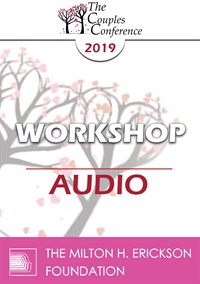
Credit available - Click Here for more information
- Average Rating:
- Not yet rated
- Topic Areas:
- Workshops | Psychobiological Approach to Couples Therapy (PACT) | Continuing Education | Communication | Couples Therapy | Attachment | Conflict
- Bundle(s):
- CC19 Main Conference Audio Bundle | CC19 Individual Selections
- Categories:
- Couples Conference | Couples Conference 2019 | Online Continuing Education | Pioneers in Couples and Family Therapy
- Faculty:
- Stan Tatkin, PsyD, MFT
- Duration:
- 1:55:42
- Format:
- Audio Only
- Original Program Date:
- Apr 13, 2019
- Short Description:
- PACT offers a fast-paced, polytheoretical approach that blends attachment theory, arousal regulation, and developmental neuroscience. This workshop trains therapists to assess microexpressions, distinguish defenses from deficits, and use creative interventions to move couples toward secure functioning. Emphasizing strategic, somatically informed techniques, PACT equips clinicians to work effectively with high-conflict and complex relational systems.
- Price:
- $15.00 - Base Price
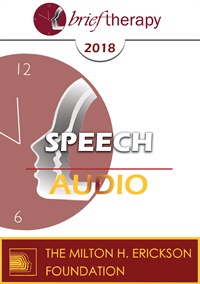
- Average Rating:
- Not yet rated
- Topic Areas:
- Speeches | Brief Therapy | Couples Therapy | Therapist Development | Relationships
- Categories:
- Brief Therapy Conference | Brief Therapy Conference 2018 | Pioneers in Couples and Family Therapy
- Faculty:
- Stan Tatkin, PsyD, MFT
- Duration:
- 1:11:45
- Format:
- Audio Only
- Original Program Date:
- Dec 09, 2018
- Short Description:
- This one-hour speech focuses on what all couple therapists should at least consider: social justice and fairness agreements between partners. The human primate is warlike, self-centered, mostly automatic, and given to flights of fancy, moodiness, and other unpredictable feelings, thoughts, and behaviors. Thus, the social science predicate of civilization dictates that, to hold human beings accountable, there must be agreements between individuals that protect them from one another.
- Price:
- $15.00 - Base Price
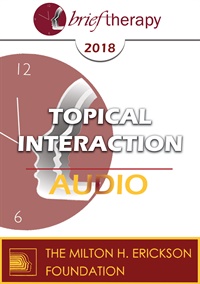
- Average Rating:
- Not yet rated
- Topic Areas:
- Topical Interactions | Brief Therapy | Communication | Evocative Communication | Resources
- Categories:
- Brief Therapy Conference | Brief Therapy Conference 2018
- Faculty:
- Bill O'Hanlon, MS
- Duration:
- 53:03
- Format:
- Audio Only
- Original Program Date:
- Dec 08, 2018
- Short Description:
- What can brief therapy work? In this session, Bill O'Hanlon will make the case that it involves evocation of already existing resources, so the client doesn't have to be fixed, taught new skills or make major changed to resolve problems.
- Price:
- $15.00 - Base Price
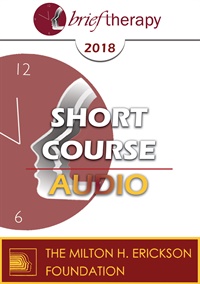
- Average Rating:
- Not yet rated
- Topic Areas:
- Short Courses | Communication | Multicultural | Sex and Sexuality | Brief Therapy
- Categories:
- Brief Therapy Conference | Brief Therapy Conference 2018
- Faculty:
- Mitra Rashidian, PhD
- Duration:
- 1:30:26
- Format:
- Audio Only
- Original Program Date:
- Dec 06, 2018
- Short Description:
- In this workshop, clinicians’ level of comfort, barriers, and attitudes when talking about sexuality will be highlighted, along with useful strategies to provide better engagement with their clients. Additional strategies used to build upon a person’s individual strengths to assist them in overcoming cultural and personal sexual imprints are offered.
- Price:
- $15.00 - Base Price
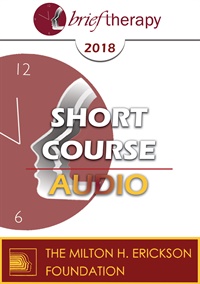
- Average Rating:
- Not yet rated
- Topic Areas:
- Short Courses | Anxiety | Communication | Depression | Neurobiology | Brief Therapy
- Categories:
- Brief Therapy Conference | Brief Therapy Conference 2018
- Faculty:
- Bart Walsh, MSW
- Duration:
- 1:29:10
- Format:
- Audio Only
- Original Program Date:
- Dec 06, 2018
- Short Description:
- Chronic anxiety and depression present significant challenges for those affected by these conditions. A behavioral treatment which accesses deep levels of mindbody functioning facilitates remission of these debilitating conditions. This treatment, conceptualized as essential neurobiological communication (ENBC), incorporates a form of body language known as ideomotor signaling. Because these are chronic conditions, the affected individual learns how to fully manage these states on their own. Also presented is a noninvasive, structured protocol for reducing the adverse influence of unresolved emotion on present experience. Essential to this model is a progressive ratification sequence intended to ground emotional adjustments in thought, perception and behavior. This brief procedure is a useful adjunct to other treatment modalities and instrumental
- Price:
- $15.00 - Base Price
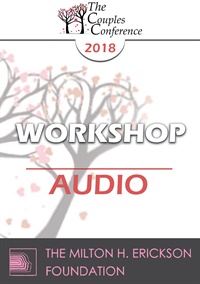
- Average Rating:
- Not yet rated
- Topic Areas:
- Couples Therapy | Workshops | Communication | Relationships | Relational Life Therapy Model (RLT) | Trauma
- Categories:
- Couples Conference | Couples Conference 2018 | Pioneers in Couples and Family Therapy
- Faculty:
- Terry Real, LICSW
- Duration:
- 58:30
- Format:
- Audio Only
- Original Program Date:
- May 04, 2018
- Short Description:
- This workshop is on Relational Life Therapy (RLT), a model designed to help clients move beyond shame and grandiosity to build healthier relationships. The speaker shares techniques for confronting dysfunctional behaviors, exploring family-of-origin patterns, and teaching practical relational skills. A case study illustrates how leverage, accountability, and skill-building can shift even high-conflict couples toward repair and responsibility.
- Price:
- $15.00 - Base Price
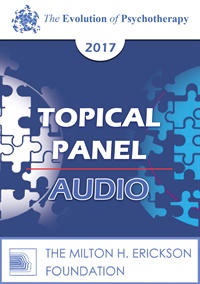
- Average Rating:
- Not yet rated
- Topic Areas:
- Topical Panels | Art and Creativity | Neurobiology | Psychotherapy | Communication
- Categories:
- Evolution of Psychotherapy | Evolution of Psychotherapy 2017
- Faculty:
- Jean Houston, PhD | Scott Miller, PhD | Daniel Siegel, MD
- Duration:
- 1:01:30
- Format:
- Audio Only
- Original Program Date:
- Dec 16, 2017
- Short Description:
- Psychotherapy is an amalgamation of science and art. All we’ve can be created that amalgamates the art of effective therapeutic communication and empirically validated orientations.
- Price:
- $15.00 - Base Price
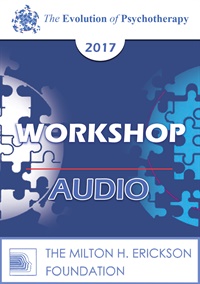
- Average Rating:
- Not yet rated
- Topic Areas:
- Workshops | Neuro-Linguistic Programming (NLP) | Communication | Psychotherapy
- Categories:
- Evolution of Psychotherapy | Evolution of Psychotherapy 2017
- Faculty:
- Robert Dilts, BA
- Duration:
- 2:46:41
- Format:
- Audio Only
- Original Program Date:
- Dec 13, 2017
- Short Description:
- For too long, and in many ways unintentionally, we’ve tried to organize our world from disjointed mental constructs. This fragmented perspective of the world has led to more and more personal imbalance, social violence and increasing environmental degradation. In this workshop, we will examine how to engage heartfull, embodied intelligence to transform disconnected, fear-based and limited thinking and behaviors into nourishing and respectful life choices. You will explore processes that enrich your capacity to coach others into greater states of wholeness and presence through the body, the voice, movement and receptive listening.
- Price:
- $15.00 - Base Price
Tags: Psychotherapy Communication NLP
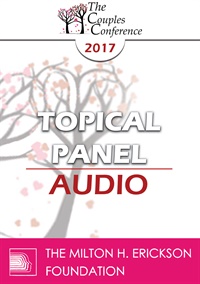
- Average Rating:
- Not yet rated
- Topic Areas:
- Topical Panels | Couples Therapy | Relationships | Developmental Psychology | Ethical Practice | Family Systems | Sex and Sexuality
- Categories:
- Couples Conference | Couples Conference 2017 | Pioneers in Couples and Family Therapy
- Faculty:
- Janina Fisher, PhD | Martha Kauppi, MS MFT | Rick Miller, MSW
- Duration:
- 58:38
- Format:
- Audio Only
- Original Program Date:
- Apr 02, 2017
- Short Description:
- A panel exploring internal and external boundaries, consent, and communication across different relationship structures. Experts Rick Miller, Martha Kauppi, and Janina Fisher discuss boundary challenges in gay male, polyamorous, and trauma-informed contexts, focusing on body awareness, self-differentiation, and therapeutic approaches to vulnerability.
- Price:
- $15.00 - Base Price
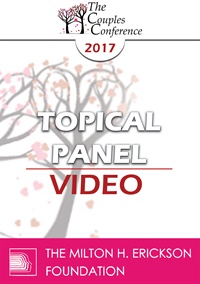
- Average Rating:
- Not yet rated
- Topic Areas:
- Couples Therapy | Topical Panels | Relationships | Developmental Psychology | Family Systems | Sex and Sexuality | Ethical Practice
- Bundle(s):
- Learning Track - Couples Starter Kit
- Categories:
- Couples Conference | Couples Conference 2017 | Pioneers in Couples and Family Therapy
- Faculty:
- Martha Kauppi, MS MFT | Rick Miller, MSW | Janina Fisher, PhD
- Course Levels:
- Master Degree or Higher in Health-Related Field
- Duration:
- 58:38
- Format:
- Audio and Video
- Original Program Date:
- Apr 02, 2017
- Short Description:
- A panel exploring internal and external boundaries, consent, and communication across different relationship structures. Experts Rick Miller, Martha Kauppi, and Janina Fisher discuss boundary challenges in gay male, polyamorous, and trauma-informed contexts, focusing on body awareness, self-differentiation, and therapeutic approaches to vulnerability.
- Price:
-
Sale is $29.00
price reduced from Base Price - $59.00
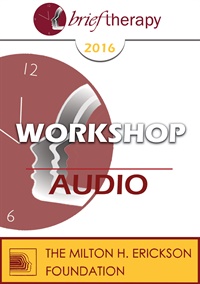
- Average Rating:
- Not yet rated
- Topic Areas:
- Workshops | Couples Therapy | Hypnotic Induction | Trance | Psychobiological Approach to Couples Therapy (PACT) | Brief Therapy | Attachment | Communication | Experiential Therapy
- Categories:
- Brief Therapy Conference | Brief Therapy Conference 2016 | Pioneers in Couples and Family Therapy
- Faculty:
- Stan Tatkin, PsyD, MFT
- Duration:
- 2:58:09
- Format:
- Audio Only
- Original Program Date:
- Dec 11, 2016
- Short Description:
- This workshop (the second of two) introduces the use of informal trance and rolling chairs in couple therapy to support arousal regulation and deeper relational work. It also showcases body-based techniques like the "Lovers Pose" and "King and Queen" exercises. Drawing from the Psychobiological Approach to Couple Therapy (PACT), it demonstrates how stationary positioning, eye contact, and right-brain engagement access implicit memory and deepen emotional connection. Through live and video demonstrations, participants learn to manage arousal, shift power dynamics, and guide couples toward secure attachment and healing.
- Price:
- $15.00 - Base Price
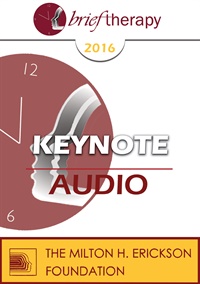
- Average Rating:
- Not yet rated
- Topic Areas:
- Keynotes | Therapeutic Relationship | Therapist Development | Communication | Ethical Practice | Family Therapy | Transparency | Empowerment | Spiritual Healing | Cross-Generational Healing
- Categories:
- Brief Therapy Conference | Brief Therapy Conference 2016 | Pioneers in Couples and Family Therapy
- Faculty:
- Cloe Madanes, HDL, LIC
- Duration:
- 51:26
- Format:
- Audio Only
- Original Program Date:
- Dec 10, 2016
- Short Description:
- Emphasizes the role of transparency in therapy, encouraging therapists to clearly explain their actions and intentions. Case examples highlight the impact of truth-telling, family rituals, and confronting hidden dynamics, including abuse, misdiagnosis, and ethical breaches. Reinforces the idea that honesty—shared even when clients are aware of the strategy—can lead to meaningful insight, accountability, and healing.
- Price:
- $15.00 - Base Price
- Average Rating:
- Not yet rated
- Topic Areas:
- Clinical Demonstrations | Brief Therapy | Communication | Family Therapy | Relationships
- Categories:
- Brief Therapy Conference | Brief Therapy Conference 2016
- Faculty:
- Wendel Ray, PhD
- Course Levels:
- Master Degree or Higher in Health-Related Field
- Duration:
- 1:02:59
- Format:
- Audio and Video
- Original Program Date:
- Dec 10, 2016
- Short Description:
- The Communication Theory Based Family and Brief Therapy developed by the Palo Alto Group pioneered specific techniques for quickly comprehending relationship and contextual commands and constraints inherent in how people communication about the problem they are experiencing. This demonstration will reveal how a therapist uses listening and joining skills to identify and use messages implied about the relationship nexus of which the problem is a part to join and engender constructive change.
- Price:
-
Sale is $29.00
price reduced from Base Price - $59.00
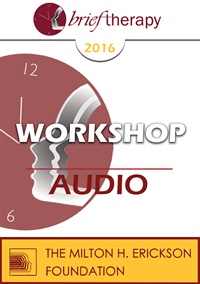
- Average Rating:
- Not yet rated
- Topic Areas:
- Workshops | Anxiety | Communication | Relationships | Therapeutic Relationship | Therapist Development
- Categories:
- Brief Therapy Conference | Brief Therapy Conference 2016
- Faculty:
- Reid Wilson, PhD
- Duration:
- 2:37:10
- Format:
- Audio Only
- Original Program Date:
- Dec 09, 2016
- Short Description:
- Taking advantage of our ever-present inner dialogue, we can help clients alter their self-talk in a way that transforms their relationship with any intimidating performance. By activating “approach” emotions and an opportunity-mindset, clients can decrease fear and improve performance. This protocol eliminates one significant step in the typical treatment process, since it is arousal congruent: clients do not need to shift their anxiety down before they step forward.
- Price:
- $15.00 - Base Price
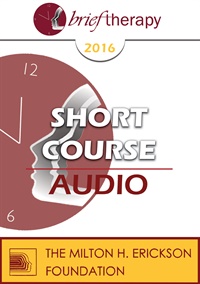
- Average Rating:
- Not yet rated
- Topic Areas:
- Short Courses | Brief Therapy | Solution Oriented Approach | Therapist Development | Communication
- Categories:
- Brief Therapy Conference | Brief Therapy Conference 2016
- Faculty:
- Elliott Connie, MA, LPC
- Duration:
- 59:07
- Format:
- Audio Only
- Original Program Date:
- Dec 08, 2016
- Short Description:
- What sets the Solution Focused Approach apart is the clinician’s deliberate focus on what the client wants instead of focusing on what the client does not want or even their presenting problem. A clinician using this approach must be comfortable enough with solution building language to be able to engage clients into a detailed conversation of their preferred future even though the client may be experience significant troubles in their life. In this workshop the presenter will demonstrate using the language of the Solution Focused Approach with clients, using video examples of real sessions, even when they are experiencing significant pain. The presenter will also lead group exercises and discussion to allow the group to practice using the skills demonstrated.
- Price:
- $15.00 - Base Price
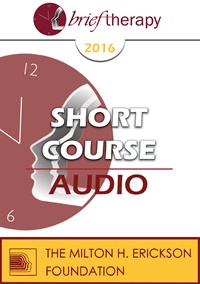
- Average Rating:
- Not yet rated
- Topic Areas:
- Short Courses | Brief Therapy | Communication | Therapist Development | Therapeutic Relationship
- Categories:
- Brief Therapy Conference | Brief Therapy Conference 2016
- Faculty:
- Robert Wubbolding, EdD
- Duration:
- 1:31:50
- Format:
- Audio Only
- Original Program Date:
- Dec 08, 2016
- Short Description:
- Clients or patients often unintentionally present hints indicating current in-control behaviors or a desire for change. Practitioners listen carefully responding to these “throw away comments” and emphasize their significance even though the patient was hardly aware that the statement contains a wealth of meaning and provides a foundation for change.
- Price:
- $15.00 - Base Price
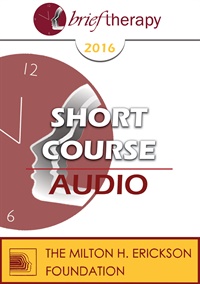
- Average Rating:
- Not yet rated
- Topic Areas:
- Short Courses | Brief Therapy | Communication | Relationships | Therapeutic Relationship | Humor
- Categories:
- Brief Therapy Conference | Brief Therapy Conference 2016
- Faculty:
- John Lentz, D. Min.
- Duration:
- 1:40:07
- Format:
- Audio Only
- Original Program Date:
- Dec 08, 2016
- Short Description:
- One liners that change people is the epitome of brief therapy. All of us have had times when one thing was said at the right moment by the right person and suddenly the world was seen differently. This workshop invites you to recognize elements that make those magic moments possible.
- Price:
- $15.00 - Base Price


